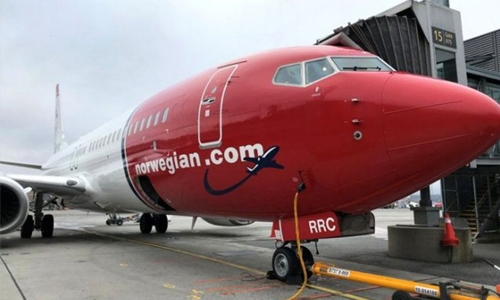Airlines get ready for jet biofuel take-off in Norway
Airlines are confident of having sufficient supplies of biofuel-infused jet fuel to comply with a Norway requirement which takes effect next year, although they warn of additional costs. From January, jet fuel suppliers in Norway must blend 0.5% of biofuel in all their aviation fuel, a policy Oslo hopes will boost supply and demand and lead to lower CO2 emissions.
Although aviation biofuel suppliers say it can cut the carbon footprint of airlines by up to 80%, it costs four times as much as normal jet fuel, which has so far curtailed usage and therefore demand for increased production. And not all biofuels are equal when it comes to their environmental impact, both in production and transportation.
Norway’s new rule demands that airplanes refueled in the country use a product made from waste fats and vegetable oil, although it excludes palm oil. “There are not that many suppliers that supply that type of fuel. We have access and can buy these quantities at this stage. As we go into the future though we need more,” Rickard Gustafson, chief executive of SAS, told Reuters.
The Scandinavian airline has set its own goal of powering all its domestic flights, which account for 17pc of its total fuel consumption, with biofuel by 2030. SAS expects Norway’s 0.5pc biofuel requirement to mean an additional 3 million euro ($3.33m) in annual fuel costs. It said it may source the biofuel it needs from AirBP, BP’s specialist aviation division, and intends to buy more from Sweden’s Preem, which is building new facilities.
Related Posts

